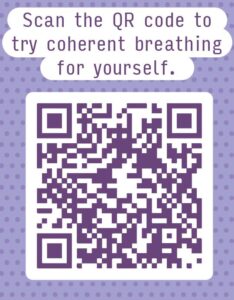After nearly a month of the new year, my list of resolutions has already dwindled down to two: eat a little healthier and breathe less.
As strange as it sounds, it’s a technique that helps me manage anxiety and I fully believe everyone should try it. As a disclaimer, those who are pregnant or epileptic shouldn’t practice these, and those with cardiovascular or other serious health issues should talk to a doctor before listening to a sophomore psychology student.
As someone who has dealt with anxiety for the better half of their life, I’ve heard the phrase “just breathe” more times than I can count when faced with chest tightening, stressful situations, and I hated it.
Obviously, I was trying to breathe. I didn’t need a reminder that I just needed to breathe. After putting in more work into managing my anxiety, I’ve come to realize the actual importance of breathing, but it is so much more than meets the eye.
Stomach breathing is a technique for deep breathing that is shown to reduce blood pressure, stress and anxiety according to the Cleveland Clinic. Deep breathing exercises, or DBE, are surprisingly effective at managing anxiety in most situations.
The method I’ve been working on is called heart rate variance (HRV, the measure of the variation between heartbeats) coherent breathing.
It consists of breathing in for six seconds and breathing out for six seconds. You repeat this cycle for three minutes, then hold your breath for 30 seconds, then repeat the entire cycle one more time.
This breathing technique lowers your breathing rate to roughly four and a half to six breaths a minute, much slower than the average twelve to twenty breaths a minute for the average adult. Again, this lower rate of breathing lowers stress, blood pressure and improves mood.
Breathing like this takes my mind off of everything because all I can focus on is properly breathing. Listening to the counts silences the rest of the racing thoughts in my brain. I need the video to still properly breathe like this, otherwise my mind wanders on each count and suddenly I’ve been inhaling for twelve seconds and my lungs feel like they are going to explode.
I’m not going to lie, I was extremely skeptical. I hated being told to “just breathe” and also hated most breathing exercises I’ve tried in the past. Usually, they only make my anxiety worse as the sudden attention to how I am breathing freaks me out and makes me feel as though I’m not getting enough oxygen.
I decided to look into the method a bit further, doing a deep dive into the National Institutes of Health for articles pertaining to these types of techniques that would allegedly help my anxiety levels. I found “Effect of Resonance Breathing on Heart Rate Variability and Cognitive Functions in Young Adults: A Randomised Controlled Study,” an article about heart rate variability and resonance breathing that showed a statistically significant decrease in the reported stress scores in the participants who were actively using the breathing techniques.
The study showed that doing the breathing technique for 20 minutes a day for four weeks may lead to positive changes in HRV and an increase in the parasympathetic nervous system. I’ve noticed some changes after doing about 10 minutes a day for two weeks.
Since starting this method of breathing, I’ve noticed that my breathing in everyday situations has started to mimic the same six seconds in, six seconds out pattern. It is important to say that doing this breathing exercise once won’t “cure” your anxiety, it merely can calm you down in that given moment and lower overall stress levels.
Once you find a video and technique you like and start doing these exercises consistently for weeks, that’s when the effects will really show.
